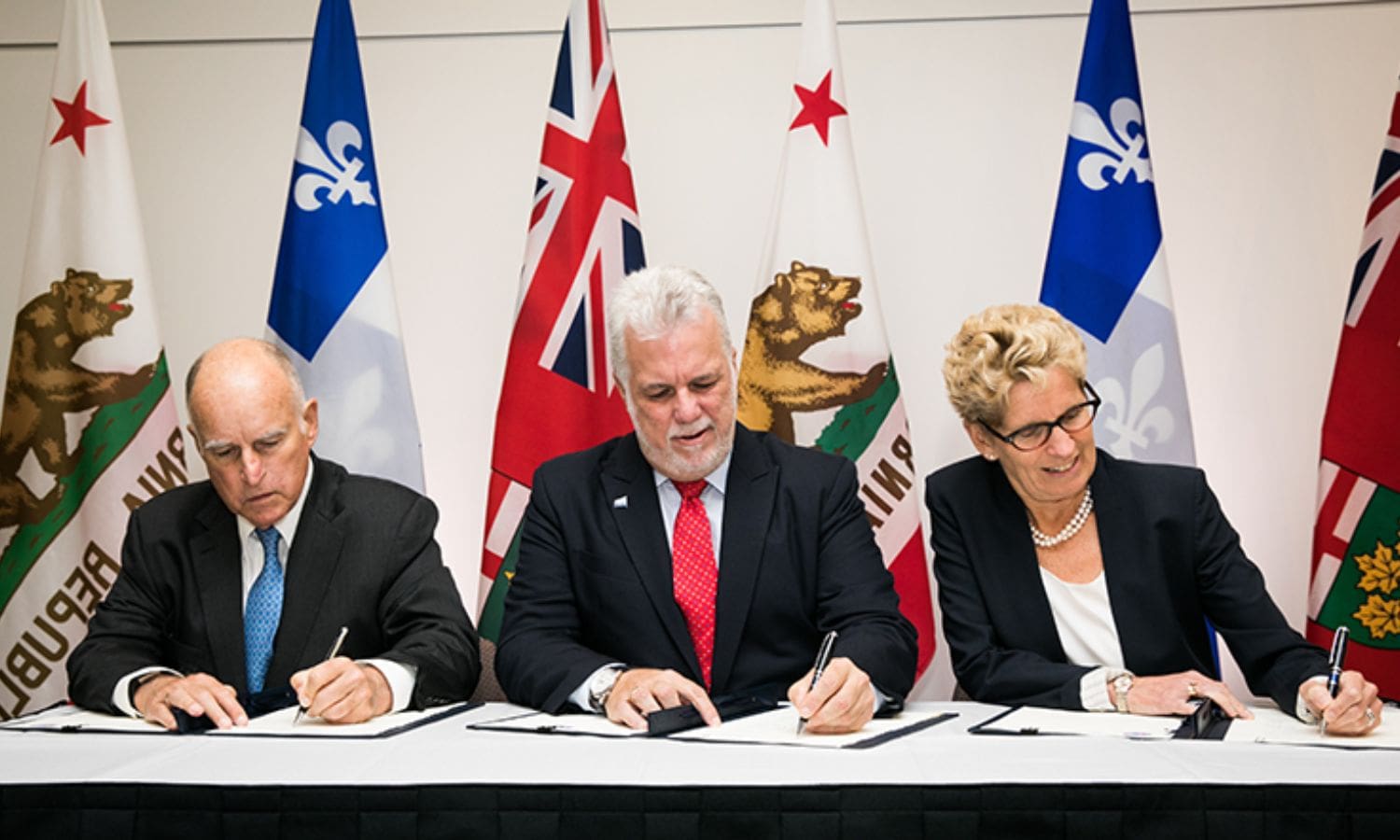Washington Proposes Cap And Trade : Washington state has proposed a cap-and-trade linkage with California and Quebec, aiming to strengthen regional cooperation on carbon emissions reduction. The bill, recently introduced, has encountered minimal opposition and is currently undergoing technical modifications to fine-tune its legislative language.
This move demonstrates the importance of aligning climate policies across jurisdictions to address the urgent need for environmental sustainability. The proposed linkage holds the potential to establish a collaborative framework for carbon trading, further enhancing efforts to combat climate change.
Key Takeaways Of Washington Proposes Cap And Trade
- The proposal aims to align Washington’s cap-and-trade program with the existing California-Quebec system, creating a larger, unified market for carbon emissions.
- There is no immediate opposition to the bill, with stakeholders showing openness to exploring cooperative measures, although lack of resistance does not imply unanimous support.
- Stakeholders are requesting technical modifications to specific aspects of the bill, demonstrating a commitment to addressing potential challenges and improving functionality.
- Fine-tuning the legislative language is crucial to ensure the effectiveness and efficiency of the cap-and-trade programs, aligning with Washington’s goals and objectives and providing legal clarity and certainty.


Also Read: Prop 47 Challenges: Perspectives on Retail Theft From Different California Legislators
Introduction of Bill for Washington’s Cap-and-Trade Linkage
The introduction of a bill for Washington’s cap-and-trade linkage with California-Quebec marks a significant step towards regional collaboration in addressing climate challenges. The proposal aims to align Washington’s cap-and-trade program with the existing California-Quebec combined system, creating a larger, unified market for carbon emissions.
This move reflects the growing recognition of the need for coordinated efforts to combat climate change. By linking these programs, Washington seeks to leverage the experience and expertise of California and Quebec in reducing greenhouse gas emissions.
The bill acknowledges the importance of cross-border cooperation in achieving climate goals and emphasizes the benefits of a regional approach. If passed, this legislation would establish a framework for collaboration and pave the way for joint efforts in reducing carbon emissions and transitioning to a more sustainable future.
Lack of Immediate Opposition
Currently, the bill encounters no immediate opposition, suggesting a potential openness among stakeholders to explore cooperative measures. However, it is important to note that the lack of resistance does not imply unanimous support, and stakeholders may still scrutinize the details.
The absence of immediate opposition can be attributed to several factors:
- Recognition of the need for cross-border collaboration to address climate change effectively.
- Acknowledgment of the successful implementation of cap-and-trade systems in California and Quebec, which may encourage other states to consider similar measures.
- The potential economic benefits associated with a cap-and-trade linkage, such as increased market liquidity and cost efficiency.
While the initial response appears positive, further discussions and careful evaluation of the proposal will be necessary to ensure broad-based support and successful implementation.


Requests for Technical Modifications
Stakeholders are actively engaging with the proposed linkage, seeking frequent adjustments to specific aspects of the bill to ensure effective implementation. These requests for technical modifications demonstrate the stakeholders’ commitment to addressing potential challenges and improving the bill’s functionality.
By providing input and requesting adjustments, stakeholders aim to fine-tune the bill’s provisions to align with their respective interests and priorities. This collaborative approach allows for a more inclusive and comprehensive policy that can effectively address the concerns of all parties involved.
It also reflects the stakeholders’ understanding of the complex nature of cap-and-trade systems and their willingness to work towards a balanced and equitable solution. Through this ongoing dialogue and iterative process, the bill can be refined to maximize its potential impact and achieve its intended objectives.
Importance of Fine-Tuning Legislative Language
One crucial aspect in the proposed cap-and-trade linkage between Washington, California, and Quebec is the need for precise and carefully crafted legislative language. The importance of fine-tuning the legislative language cannot be overstated, as it will determine the effectiveness and efficiency of the linked cap-and-trade programs.
To highlight the significance of this task, consider the following:
- Alignment with goals: The legislative language must align with Washington’s specific goals and objectives, ensuring that the proposed linkage supports the state’s efforts to reduce greenhouse gas emissions and combat climate change.
- Addressing considerations: Fine-tuning the language allows for addressing specific considerations unique to each jurisdiction, such as differences in economic conditions, emission reduction targets, and policy priorities.
- Ensuring legal clarity: Precise legislative language is essential for providing legal clarity and certainty, enabling stakeholders to understand their obligations and rights under the linked cap-and-trade programs.
Implications for Regional Cooperation
The proposed cap-and-trade linkage between Washington, California, and Quebec has significant implications for regional cooperation in addressing the global challenge of climate change. By linking their cap-and-trade systems, these jurisdictions can create a larger and more robust market for carbon allowances, increasing the efficiency and effectiveness of their emissions reduction efforts.
This collaboration allows for the sharing of best practices, knowledge, and technology, fostering innovation and accelerating the transition to a low-carbon economy.
Furthermore, the partnership between these states and provinces sends a strong signal to the international community that subnational governments are taking decisive action to combat climate change. This regional cooperation not only strengthens the credibility of these jurisdictions’ climate commitments but also sets an example for other regions and encourages broader global efforts to tackle this urgent issue.


Conclusion Of Washington Proposes Cap And Trade
The proposed cap-and-trade linkage between Washington, California, and Quebec holds significant implications for regional cooperation.
The introduction of the bill has not faced immediate opposition, but requests for technical modifications are being made to fine-tune the legislative language. This highlights the importance of carefully crafting the framework for the linkage.
Overall, the proposed linkage has the potential to foster collaboration and enhance efforts in addressing climate change.

